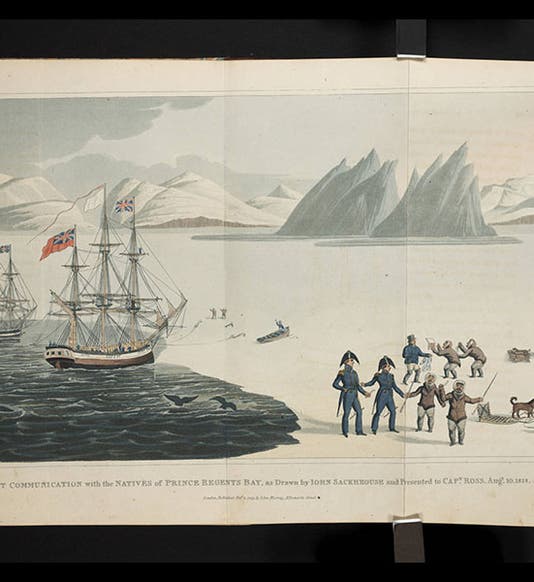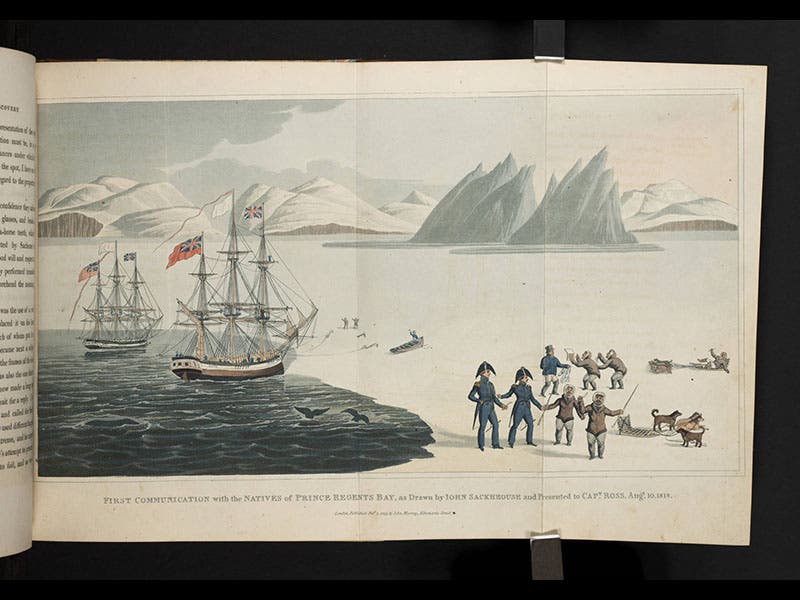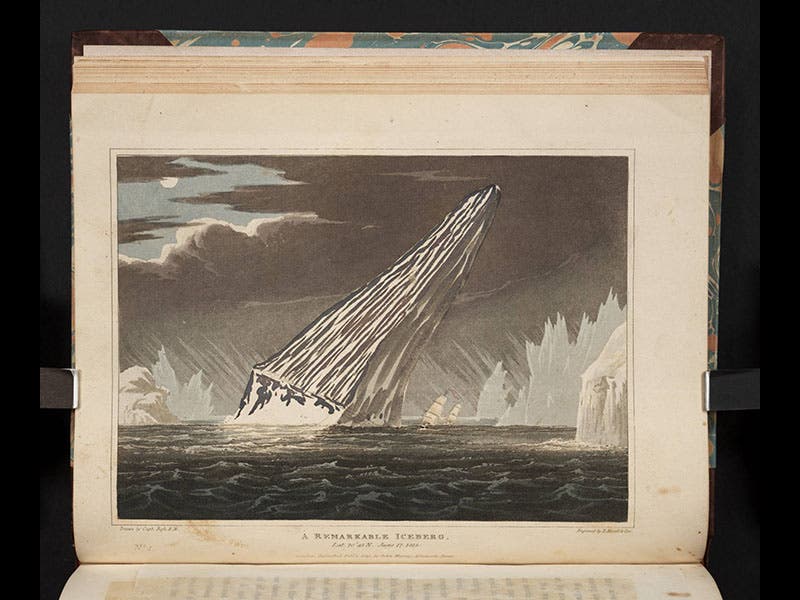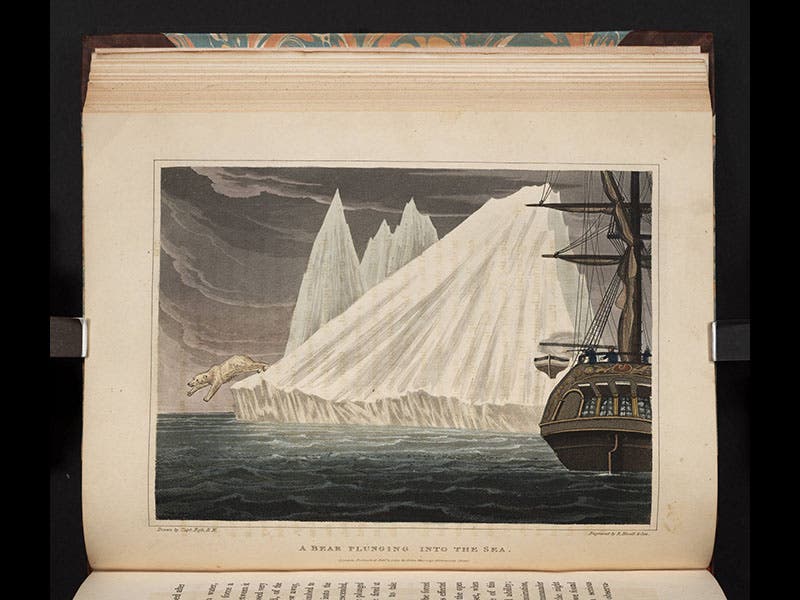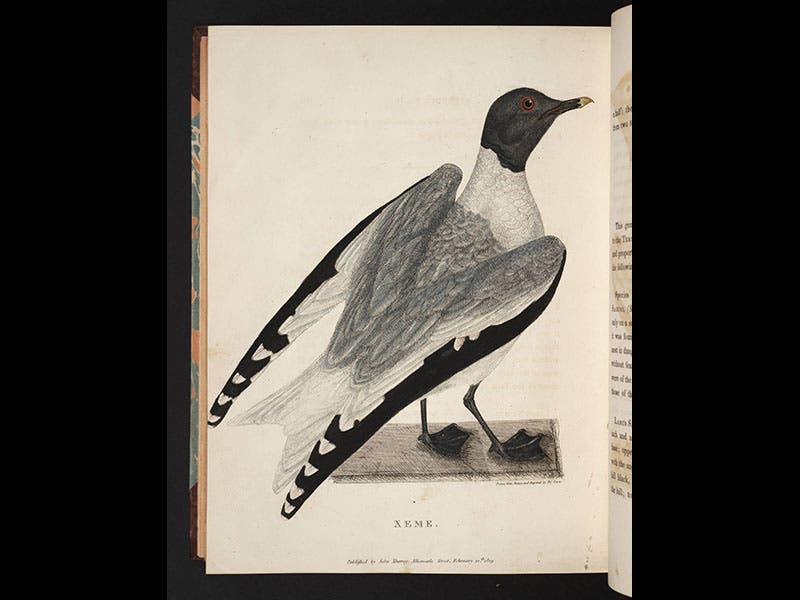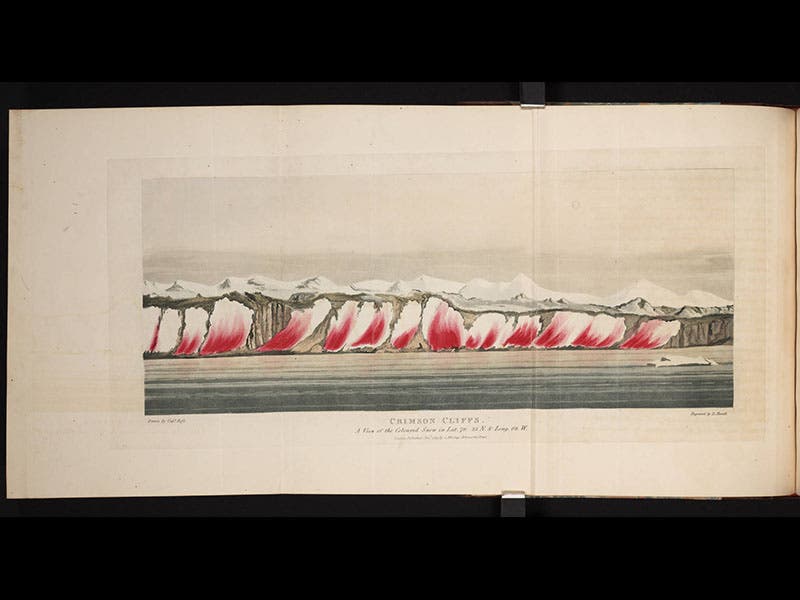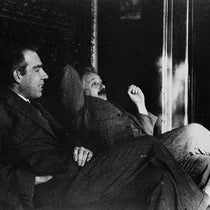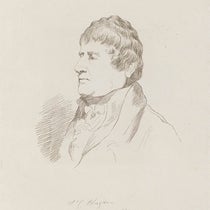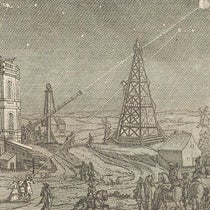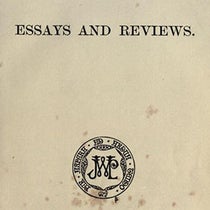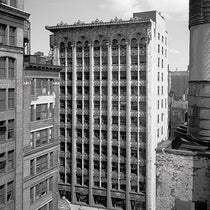Scientist of the Day - Sir John Ross
John Ross, an officer in the Royal Navy, was born June 24, 1777. He was chosen in 1818 to command the first of the modern searches for a Northwest Passage. He took his ship, HMS Isabella, up Baffin Bay, right to the entrance of the Arctic archipelago, which was called Lancaster Sound. He then declared that the Sound was blocked by a chain of mountains (which he named the Croker Mountains), and he turned around and came home, much to the surprise of his junior officers, who could not see the mountains at all. John Barrow of the Admiralty, who organized the expedition, was furious with Ross, and guaranteed that he would never get another command (which he did not). Barrow promptly sent Ross's second-in-command, Edward Parry, back the next year, and Parry sailed right though the phantom Croker Mountains and made it half-way across Canada. But Ross actually accomplished a great deal on this first voyage. He encountered the native Greenlanders (see first image above), saw and drew icebergs (second image), polar bears (third image), arctic birds, such as Sabine’s gull (fourth image), and observed a long bank of crimson snow that would intrigue scientists for years to come (fifth image). His narrative, A Voyage of Discovery, Made under the Orders of the Admiralty, in His Majesty’s Ships Isabella and Alexander, for the Purpose of Exploring Baffin’s Bay, and Inquiring into the Probability of a North-West Passage (1819), is one of the most readable of all the Arctic voyage accounts, and we displayed it in our 2009 exhibition, Ice: A Victorian Romance. Dr. William B. Ashworth, Jr., Consultant for the History of Science, Linda Hall Library and Associate Professor, Department of History, University of Missouri-Kansas City. Comments or corrections are welcome; please direct to ashworthw@umkc.edu.

